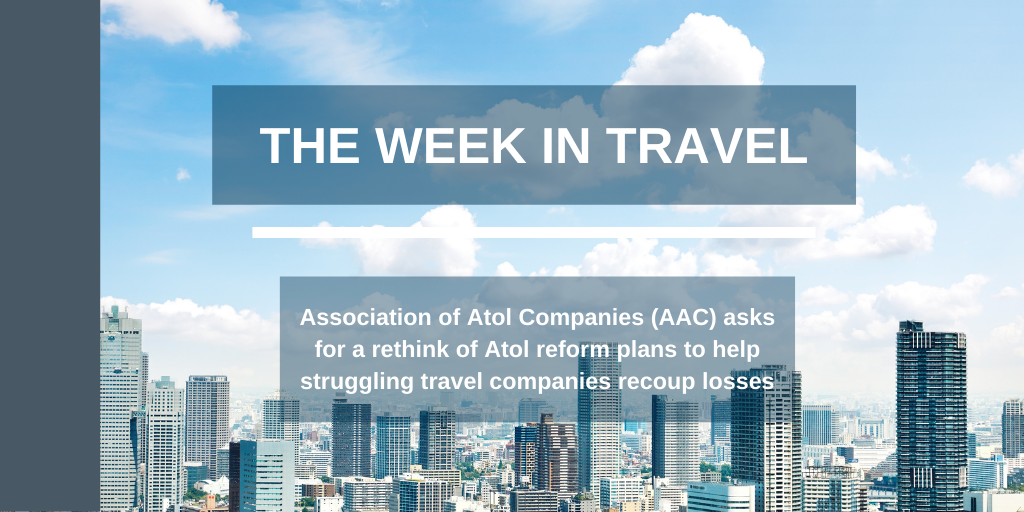The Week in Travel – 16th July

The Association of Atol Companies (AAC) has this week said that the UK Civil Aviation Authority’s (CAA) proposal to reform the Atol scheme could pose “a major issue” for travel agents which are already facing severe cashflow problems.
Industry leaders including ABTA and EasyJet have spoken out against the proposed changes, which will increase consumer financial protection by ringfencing customer payments, at a time when overly stringent regulations could be detrimental to the sector’s recovery.
Also this week, the International Air Transport Association (IATA) has urged governments to follow the World Health Organisation’s travel advice and take a “risk-based approach” to implementing COVID-19 related measures. Advice includes removing the condition of vaccination proof for entry and exit of countries and relaxing testing and/or quarantining measures for fully vaccinated travellers.
In similar news, despite continued confusion and disruption due to the traffic light system, ABTA’s latest research into attitudes towards travel highlights increased public positivity about travel professionals. Findings show that consumers are 25% more likely to book with a travel professional now than before the pandemic and 25% more likely to book a package holiday. Increased financial security, trust, value for money and convenience were cited as reasons for this shift.
In sustainability news, the UK government has said that its Transport Decarbonisation Strategy, which aims to reduce the carbon emissions of transport to nearly zero by 2050, will not require consumers to fly less. The policy, which has been criticised by environmentalists, places emphasis on the impact of carbon-reducing innovations. In related news, a report by Emburse has revealed that, while one in two US organisations plan to increase their focus on environmentally sustainable travel post-pandemic, only 35% of companies have a policy that includes sustainable business travel measures.
And finally, Beach Check UK, a mobile application that enables users to check the status of a beach before they arrive to avoid congestion and encourage travel to different locations, has expanded its offering. Working on a traffic light system, the app informs prospective visitors of availability of parking, number of visitors and ability to socially distance, with the hope of encouraging people to visit beaches.